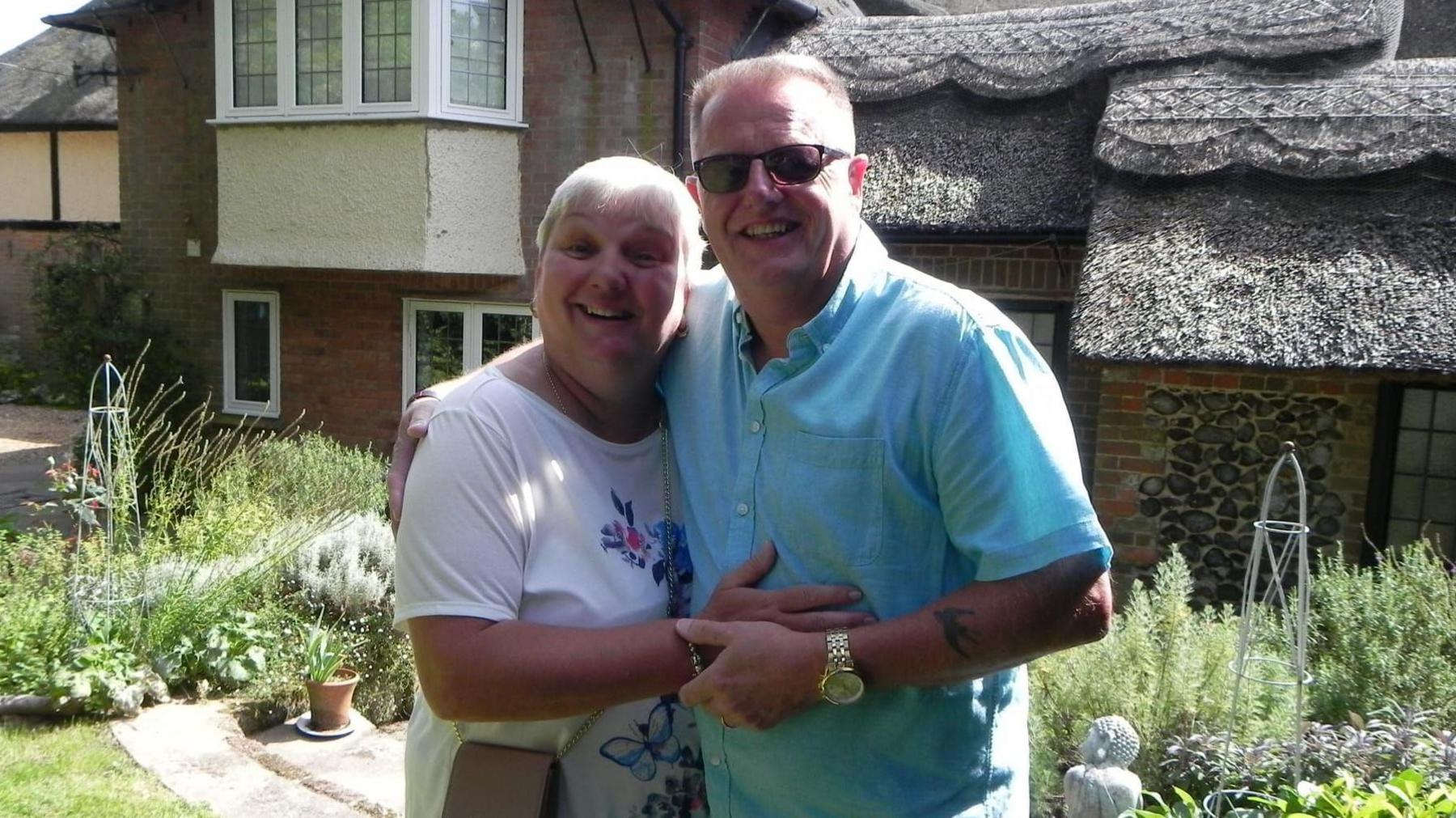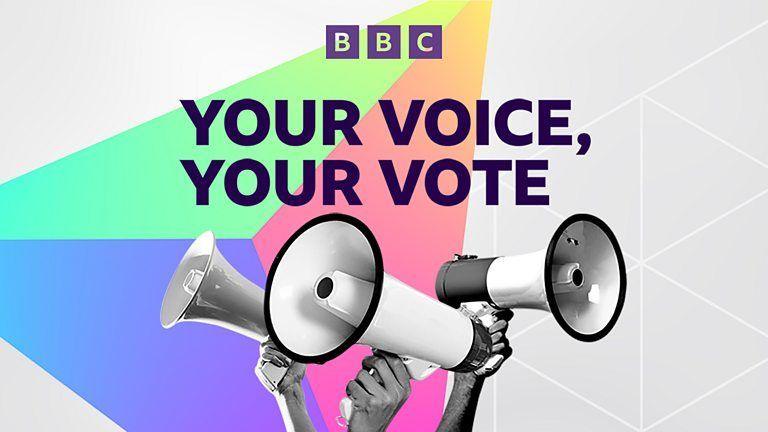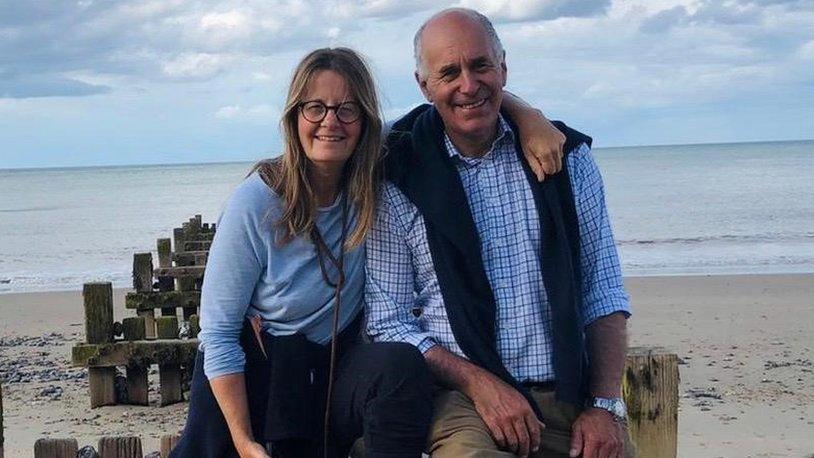What will parties do about personal care costs?

Howard Wurr is a full-time carer for his wife Michelle who has a range of health conditions
- Published
In the run up to the general election, the BBC is looking at the issues that matter the most to you as part of Your Voice, Your Vote.
Howard Wurr, 61, lives in Catton, Norwich, with his wife Michelle, 58, who he has been caring for over the past 20 years.
He is concerned about what the parties are going to do about the minimum income guarantee (MIG) - the amount of money people with a disability can earn before they start paying for personal in-home care.
“I work seven days a week, about 70 hours a week for my carer's allowance, and I want to know which party is going to give carers a fair deal,” he said.
Mr Wurr's wife developed cerebral palsy from birth but managed to work full-time until 20 years ago, when she had a fall, which led to several seizures.
Three years ago these brought about her early-onset dementia.
Mr Wurr said as a result, he had to give up work as a delivery driver, and currently receives £81 per week carer's allowance for looking after his wife, as well as income support. His wife also receives benefits.
But he says money is tight and is concerned about the MIG, external for carers.
This is the amount people can earn before they must contribute towards any local authority arranged support, such as respite care or personal care, such as the cost of someone coming daily to help dress and bathe his wife.
His local authority, Norfolk County Council, which is struggling financially, has been considering whether to reduce the MIG threshold from £187 a week to £171.25.
“My mental health has been affected and my physical health too. Carers save the country a lot of money," said Mr Wurr.

If you’ve got an issue you would like us to explore, contact Your Voice, Your Vote
What do the political parties say on MIG?
The Conservatives' manifesto says it "hugely values" the work that unpaid carers do and that the party has increased the Carer’s Allowance by almost £1,500 since 2010. It added the party had introduced unpaid carers entitlement to a period of unpaid leave. However it does not mention MIG as such.
Similarly Labour makes no mention of MIG in its manifesto. Instead it says, "Labour will undertake a programme of reform to create a National Care Service, underpinned by national standards, delivering consistency of care across the country. Services will be locally delivered, with a principle of ‘home first’ that supports people to live independently for as long as possible."
The Liberal Democrats have more of its manifesto devoted to care, including a commitment to increasing carer’s allowance and expanding eligibility for it. They also want to introduce a statutory guarantee of regular respite breaks for unpaid carers, bring in paid carer’s leave, building on the entitlement to unpaid leave. They plan to introduce free personal care based on the model introduced by the Scottish Liberal Democrats in government in Scotland in 2002, "so that provision is based on need, not ability to pay".
The Greens, similar to the Lib Dems, has said it would make personal care free - which includes support with daily tasks such as washing, dressing and medication. The party says it has found new investment of £20bn, which it claims is enough to pay for free personal care.
Reform UK says it would begin a Royal Commission of Inquiry into the social care system to form a national plan between the government, local authorities and home carer support groups. Reform says more funding will be required when a plan is agreed.

What really matters to you in this general election? What is the one issue that will influence your vote? Click the button below to submit your idea, and it could be featured on the BBC.
Related topics
- Published22 January 2024
